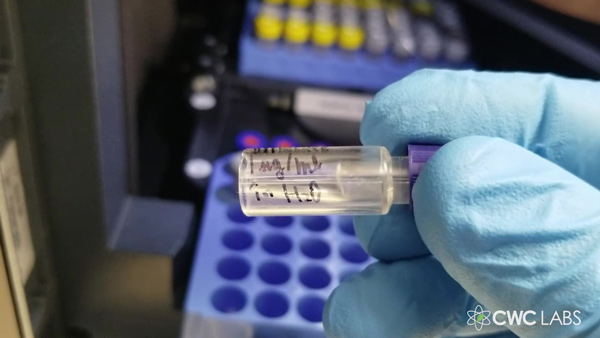
Breaking News
 EXCLUSIVE: "The HUGE Elephant In The Room Is Actually What Jeffrey Epstein Was Best At..."
EXCLUSIVE: "The HUGE Elephant In The Room Is Actually What Jeffrey Epstein Was Best At..."
 EXCLUSIVE INTERVIEW: Republican Candidate For Texas Governor "Doc" Pete Chambers Joins...
EXCLUSIVE INTERVIEW: Republican Candidate For Texas Governor "Doc" Pete Chambers Joins...
 Epstein Files Trigger Political Fallout Across Europe
Epstein Files Trigger Political Fallout Across Europe
 Conjoined twin 'influencers' who have gained more than 280,000 followers with their intimate
Conjoined twin 'influencers' who have gained more than 280,000 followers with their intimate
Top Tech News
 How underwater 3D printing could soon transform maritime construction
How underwater 3D printing could soon transform maritime construction
 Smart soldering iron packs a camera to show you what you're doing
Smart soldering iron packs a camera to show you what you're doing
 Look, no hands: Flying umbrella follows user through the rain
Look, no hands: Flying umbrella follows user through the rain
 Critical Linux Warning: 800,000 Devices Are EXPOSED
Critical Linux Warning: 800,000 Devices Are EXPOSED
 'Brave New World': IVF Company's Eugenics Tool Lets Couples Pick 'Best' Baby, Di
'Brave New World': IVF Company's Eugenics Tool Lets Couples Pick 'Best' Baby, Di
 The smartphone just fired a warning shot at the camera industry.
The smartphone just fired a warning shot at the camera industry.
 A revolutionary breakthrough in dental science is changing how we fight tooth decay
A revolutionary breakthrough in dental science is changing how we fight tooth decay
 Docan Energy "Panda": 32kWh for $2,530!
Docan Energy "Panda": 32kWh for $2,530!
 Rugged phone with multi-day battery life doubles as a 1080p projector
Rugged phone with multi-day battery life doubles as a 1080p projector
 4 Sisters Invent Electric Tractor with Mom and Dad and it's Selling in 5 Countries
4 Sisters Invent Electric Tractor with Mom and Dad and it's Selling in 5 Countries
Mike Adams / CWC Labs announces glyphosate lab testing of popular water filters… see exclusive ...

(Natural News) As part of 2019 effort to conduct more lab science in the public interest, we are announcing glyphosate testing for water filters. The experiment, carried out at CWC Labs, will pour diluted glyphosate (2ppm glyphosate in water) through popular water filters, then test the resulting "filtered" water to see how much glyphosate is removed.
The water filters being tested include:
Culligan
Brita
Mavea
Pur
pH Life
Seychelle
Big Berkey
Crystal Drop
Doulton
Zero Water
I've posted the full video announcing this experiment at this Brighteon video link. (Or see the full video below.) Full results of the experiment will be posted exclusively at Glyphosate.news in the coming days. Natural News will link to the Glyphosate.news results and announce them in the Natural News email newsletter.

Why we use a triple-quad mass spec instrument to test for glyphosate
The instrument we use to measure glyphosate concentrations is a triple quad mass spec (LC-MS-MS), capable of detecting glyphosate well below 1 ppb. This instrument is shown in the video below.
As I explain in the video, I doubt whether any of these popular water filters will show much effectiveness at removing glyphosate. Many water filters claim to remove "99% of pesticides" and other chemicals, and while that may be true with specific, individual pesticides, it seems incredibly unlikely that any filter would remove anywhere close to 99% of glyphosate.
Here's why: Glyphosate is water soluble and does not easily interact with the chemistry of water filter media. Where lead and mercury, for example, are easily captured by activated carbon, glyphosate moves right through activated carbon. In addition, glyphosate is highly polar, meaning the glyphosate molecule has strongly opposite charges on the two ends of its molecule. As explained in this Perkin Elmer document quoted below, most labs have traditionally used something called "post-column derivatization" in their methods to detect glyphosate, involving the use of extremely toxic chemicals:
" />



